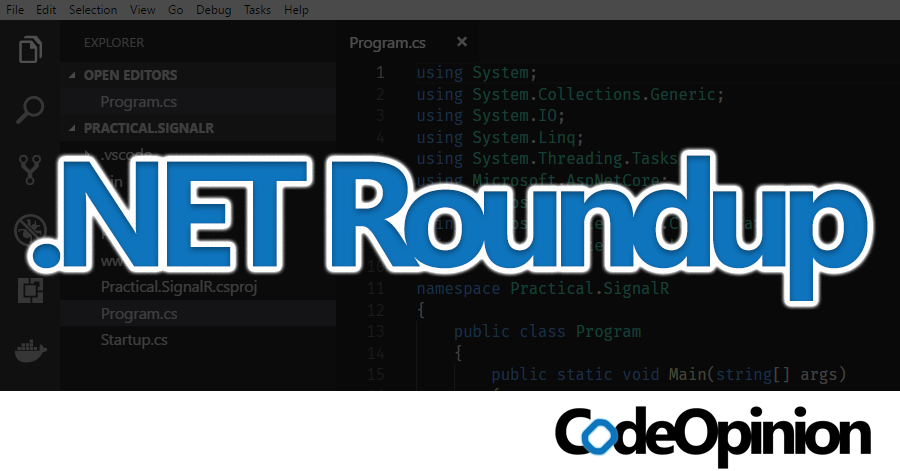Sponsor: Do you build complex software systems? See how NServiceBus makes it easier to design, build, and manage software systems that use message queues to achieve loose coupling. Get started for free.

Coyote: Making it easier for developers to build reliable asynchronous software
For developers, writing bug-free software that doesn’t crash is getting difficult in an increasingly competitive world where software needs to ship before it becomes obsolete. This challenge is especially apparent with online cloud services, which are often dictated by aggressive shipping deadlines. Cloud services are distributed programs comprising multiple back-end systems that continuously exchange asynchronous signals while responding to incoming web requests. They are complex by nature, hard to get right, and require protection from failures that could jeopardize client data or halt key services.
DetectDuplicates
A .NET Global tool that scans csproj files for duplicate package references
Link: https://github.com/jchannon/DetectDuplicates
YARP project (Reverse Proxy)
YARP (which stands for “YARP: A Reverse Proxy”) is a project to create a reverse proxy server. We found a bunch of internal teams at Microsoft who were either building a reverse proxy for their service or had been asking about APIs and tech for building one, so we decided to get them all together to work on a common solution, this project.
Link: https://github.com/microsoft/reverse-proxy
The Most Exciting Promise of .NET 5
It’s hard to believe that .NET only came out in 2002. There are so many versions of the framework, rapidly changing the places a C# developer could create and support. The entire ecosystem just turned 18, and it has been confusing at times with versioning. I fell in love with how powerful the platform was, but often, choosing to upgrade to the latest major or minor version proved difficult. How much actual value would I get from upgrading?
Link: https://developer.okta.com/blog/2020/04/17/most-exciting-promise-dotnet-5
Lambda? You Keep Using that Letter – Kevlin Henney
Lambdas. All the cool kid languages have them. But does ‘lambda’ mean what C#, Java, Python, C++, etc. mean by ‘lambda’? Where did lambdas come from? What were they originally for? What is their relationship to data abstraction?
In this session we will into the history, the syntax and the uses of lambdas and the way in which lambda constructs in various languages do (or do not) match the original construct introduced in lambda calculus.